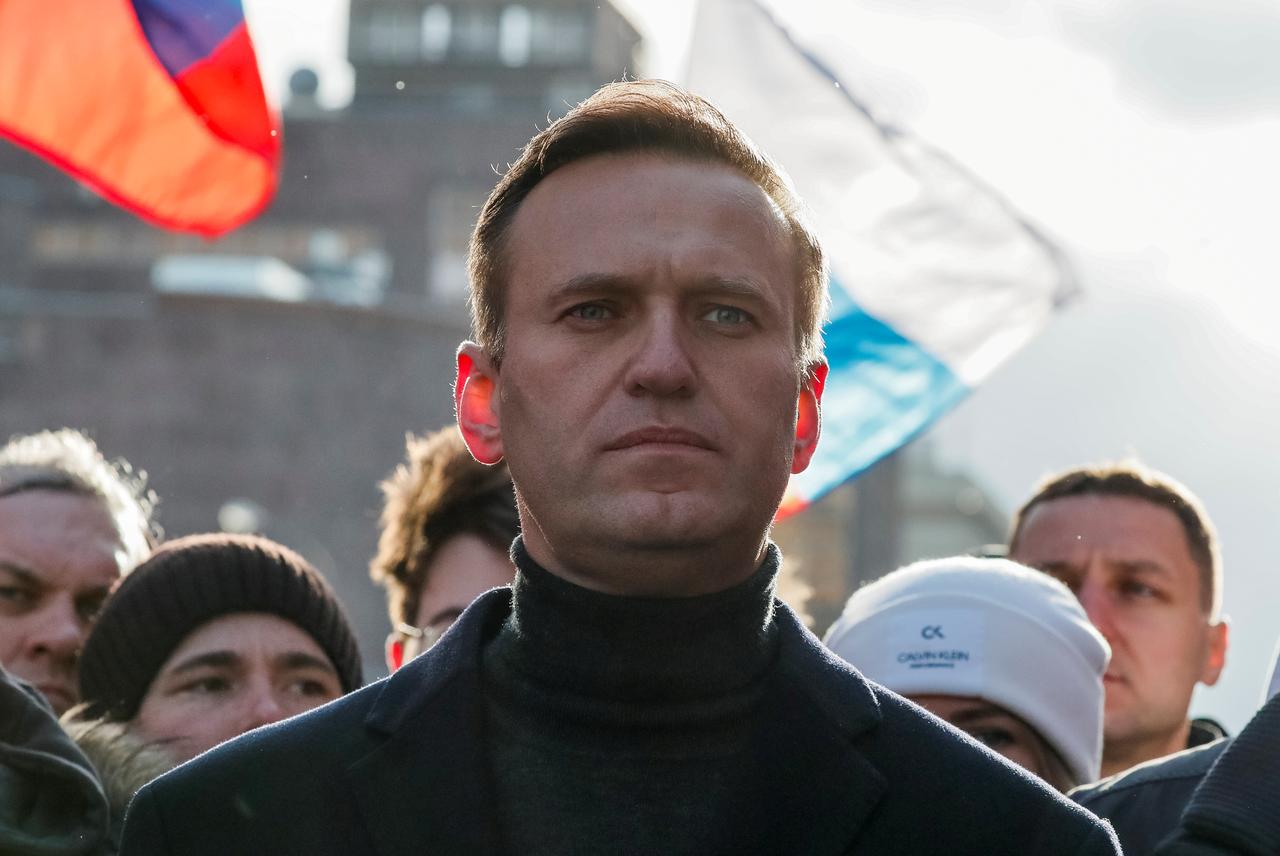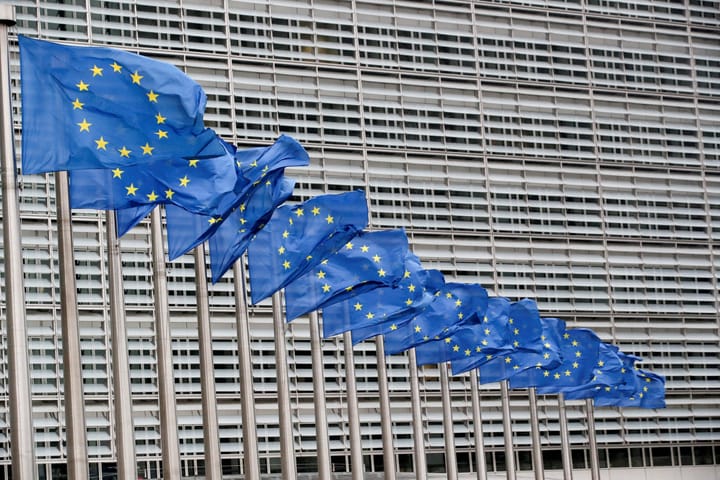Russian President Putin’s political adversaries keep being poisoned

A few minutes every morning is all you need.
Stay up to date on the world's Headlines and Human Stories. It's fun, it's factual, it's fluff-free.
Putin has denied any involvement in the poisoning of his political adversaries – going so far as to suggest Alexei Navalny poisoned himself – but his critics have little doubt he was behind the assassination attempts.
On September 22, Alexei Navalny, the leader of Russia’s main opposition party, Russia of the Future, left a German hospital after recovering from nerve agent poisoning.
Navalny had fallen ill on August 20, while on a flight from Serbia to Moscow, requiring the plane to make an emergency landing. He was transferred to Berlin two days later, where German doctors determined he had been poisoned.
An investigation into how and why Navalny was poisoned is ongoing, but parallels to the poisoning of other Russians in recent years points to one common figure: Russian President Vladimir Putin. Putin has denied any involvement in the poisoning of his political adversaries – going so far as to suggest Navalny poisoned himself – but his critics have little doubt he was behind the assassination attempts.
The poisoning of Alexei Navalny
As the leader of the Russia of the Future party (Rossiya Budushchego in Russian, formerly the Progress Party), Navalny is one of the most visible critics of Putin and his government. Navalny, known as an anti-corruption politician, formed the party to bring about “real changes, real reforms.”
While there are multiple opposition parties to Putin’s United Russia, Russia of the Future and Navalny are considered the best known and most popular. As a result, Navalny has faced regular hostility from the government. In 2017, Navalny was barred from participating in the 2018 election. The reason was a conviction for embezzlement that Navalny adamantly disputes.
In June this year, Navalny faced a new criminal charge for libeling a veteran of World War II. The alleged offense came in statements he made opposing the recent constitutional amendments that would allow Putin to remain in power until 2036. Despite his opposition to the amendments, Navalny called the existing constitution “disgusting” in a tweet in January and said it should not be defended.
After being rushed to Berlin, tests confirmed Navalny had been poisoned by a nerve agent from a family of poisons known as Novichok, which was developed in the Soviet Union. World leaders condemned the act, with German Chancellor Angela Merkel and British Prime Minister Boris Johnson demanding answers from the Russian government.
Former United States vice president and current Democratic presidential nominee Joe Biden said the poisoning was an “outrageous and brazen attempt on Mr. Navalny’s life.” President Donald Trump refused to address the matter when asked about it on September 21.
Though Navalny was discharged after over a month in Berlin’s Charité hospital, there remain many unanswered questions.
Putin has denied involvement in the matter. It has been reported that he told French President Emmanuel Macron that he believes Navalny poisoned himself. It’s a strange assertion and an implausible defense, particularly considering the history of Putin critics being poisoned.
The poisoning of Sergei and Yulia Skripal
Novichok was also used in 2018 to poison another Putin adversary, a former Russian intelligence officer turned British double agent named Sergei Skripal, as well as his daughter, Yulia. A police officer who investigated the crime was poisoned, too, likely by coming into contact with a perfume bottle that was used to carry the nerve agent.
Having escaped to the United Kingdom following a spy swap in 2010, the Skripals were living in Salisbury, England at the time of the attack. Both survived the attempted assassination, which was carried out by Alexander Petrov and Ruslan Boshirov, agents for GRU, or the Main Directorate of the General Staff (in Russian, GRU stands for Glavnoye Razvedyvatelnoye Upravlenie).
Russia denied any involvement in the poisoning, claiming it was British propaganda.
In recent years, agents affiliated with the GRU have been linked to multiple international acts of espionage. In the US, that included the hacking of the Democratic National Committee during the 2016 presidential election. Multiple Russian agents were indicted by Special Counsel Robert Mueller in 2018 for interfering in the election.
GRU agents have been accused of stirring discord in Spain over the Catalan independence movement in 2016 and 2017. In 2018, GRU agents were involved in a cyberattack of the Netherlands-based Organization for the Prohibition of Chemical Weapons (OPCW). They were also behind a cyberattack on international companies that resulted in the global financial loss of billions.
The poisoning of Alexander Litvinenko
In 2006, an Ex-Russian spy and British citizen named Alexander Litvinenko died at the age of 43 after being admitted to a hospital in London, England. At the time of his death, the cause was not known, though he suffered a heart attack while in the hospital. It was later determined that he died of radiation poisoning due to ingesting polonium that had been added to his tea.
Ten years after his death, an official British inquiry determined Litvinenko had been poisoned by Andrey Lugavoy and Dmitri Kovtun, two Russian agents. It was concluded Putin had likely had knowledge of the act.
In 2015, a lawyer for Litvinenko’s family argued before the inquiry that his assassination was due to him angering a “close knit group of criminals who surrounded and still surround Vladimir Putin and keep his corrupt regime in power.”
Litvinenko had been an outspoken critic of Putin, who was in his second term as Russia’s president when Litvinenko died. He was said to be attempting to expose Putin’s corruption and connections to the Russian mafia.
The poisoning of Anna Politkovskaya
In 2004, a Russian writer named Anna Politkovskaya, who was critical of Putin’s actions in Chechnya, fainted on a plane traveling from Moscow to a city in southern Russia, near the border with Ukraine. When she was taken to a hospital, it was determined she had been poisoned. Her reporting on the war in Chechnya, which included an accusation of prisoner torture, was said to have angered Putin’s regime.
Politkovskaya recovered from the poisoning. However, two years later, she was found shot at her Moscow apartment. Near her body were four bullets and a pistol. It was believed to be a contract killing.
In an excerpt from her 2004 book, “Putin’s Russia,” Politkovskaya discussed her unease with the president:
“I have wondered a great deal why I have so got it in for Putin. What is it that makes me dislike him so much as to feel moved to write a book about him? I am not one of his political opponents or rivals, just a woman living in Russia. Quite simply, I am a 45-year-old Muscovite who observed the Soviet Union at its most disgraceful in the 1970s and ’80s. I really don’t want to find myself back there again.”
Have a tip or story? Get in touch with our reporters at tips@themilsource.com




Comments ()